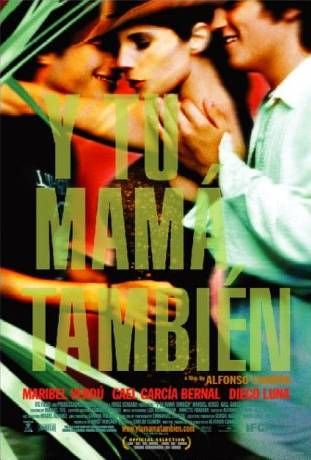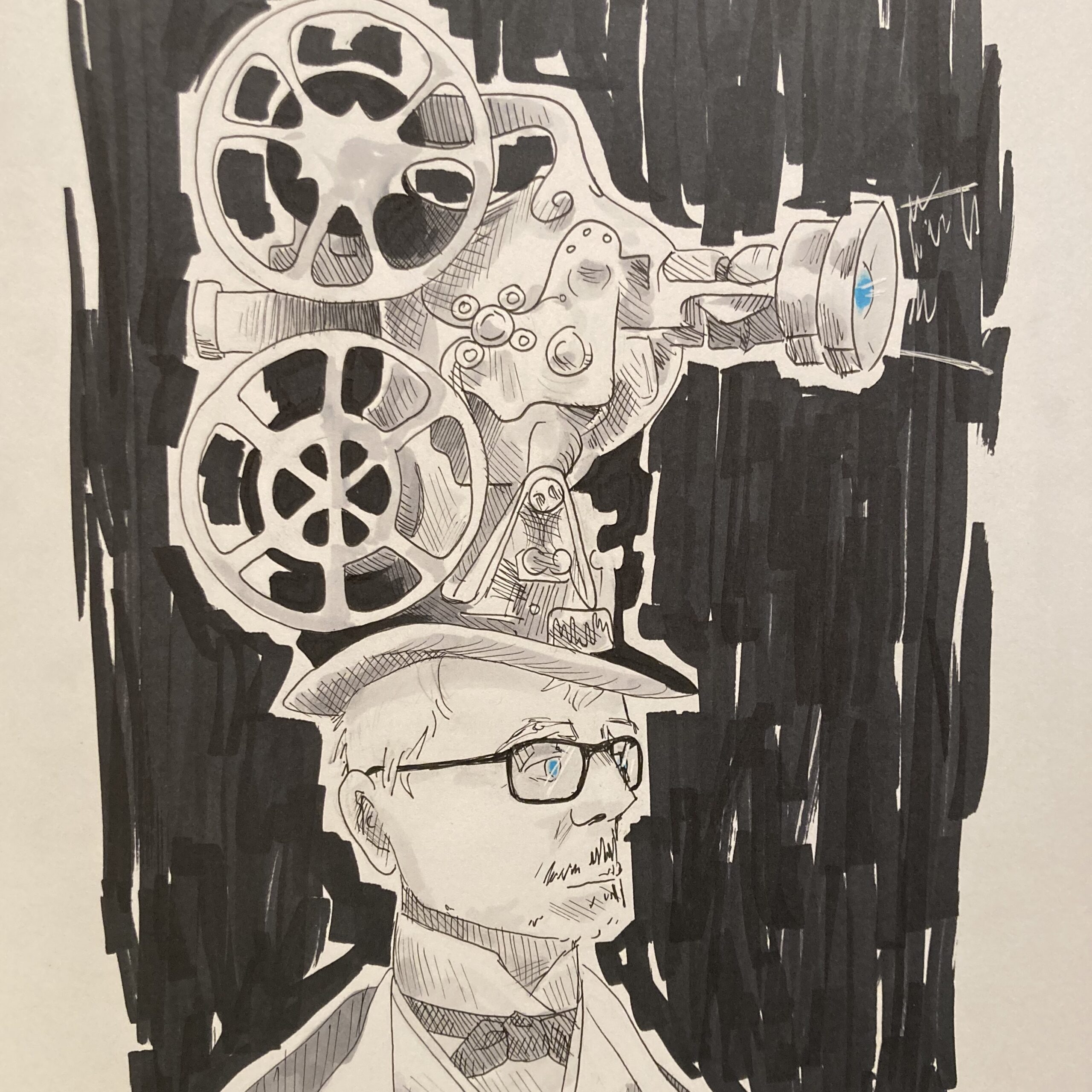“The greatest pleasure is giving pleasure.”
It’s sometimes quite difficult to translate the success of one creative medium into another. In reality-derived creative media there are also limits to what parts of reality we will look at and listen to. Should we really stare at suffering? Are bodily functions worth our time? Is human intimacy something we ought to encourage through our patronage and attention?
Alfonso Cuarón tackles both of these problems in his 2001 film Y Tu Mamá También, which is really a graphic examination of normally excluded human behavior that makes many spectators shift and worry.

Y Tu Mamá También centers on two teenaged boys, Julio (Gael García Bernal) and Tenoch (Diego Luna), who entice an older woman, Luisa (Maribel Verdú), into taking a road trip with them, in the hope they will both have sex with her. But the story is really about an unnamed narrator (Daniel Giménez Cacho) who frequently interrupts the movie to comment on present action, extend the history of characters, comment on Mexican politics in the late 1990s, and, in one memorable case, describe the fate of 23 pigs that have escaped from a farm.
If movies are about the public performance of speech and action inside story worlds captured by cameras and microphones, novels are the exploration of memory and fantasy through a mix of dialogue and expository words used to attract a reader. Combine the two forms, movie + novel, and you get Y Tu Mamá También, whereby the narrator interrupts his class-sensitive coming of age story, with all diegetic sound dropping out, to expound on topics that often have little to do with Julio, Tenoch, or Luisa.
Then there are these saleable facts: the movie includes much nudity, graphic sex, drunkenness, and drug use, and all of this occurs from the opening scene when we see Tenoch make love to his girlfriend before we see Julio doing the same with his girlfriend. Viewers may squirm and laugh at these introductions that are bluntly produced and awkward with youthful enthusiasm, only to later blush once Luisa is added to the mix.

About the ménage à trois: Luisa is an adult while Julio and Tenoch are in high school. When the movie ends, just before the boys head off to college — Julio to public university because he’s the son of a working class single mother, while Tenoch heads off to a private university and, presumably, the path of his rich, government-connected father — we’re left consider Luisa.

Meaning: We have to consider the fact that she “seasons” Julio and Tenoch, presiding over the temporary expansion of their homosocial bond into a homosexual affair. In the event, Luisa commits rape.
The significance of sexual power matters, here, because the movie was written by the Cuarón brothers, Alfonso and Carlos, who share screenwriting credit in this Academy Award-nominated script that explores a common male adolescent fantasy of being seduced by a beautiful older woman. With all of its breathtaking cinematography, courtesy of Emmanuel Lubezki, its focused examination of rural Mexican poverty, and its willingness to study normally avoided subjects (masturbation, toiletry habits, Queer desire, etc.), Y Tu Mamá También is a masterwork on male maturation that acknowledges the overlapping nature of friendship and romance, competition and consideration, pleasure and regret, and its novel-as-movie features strong performances, even when the performers are totally naked but unashamed.
–February 28, 2019



